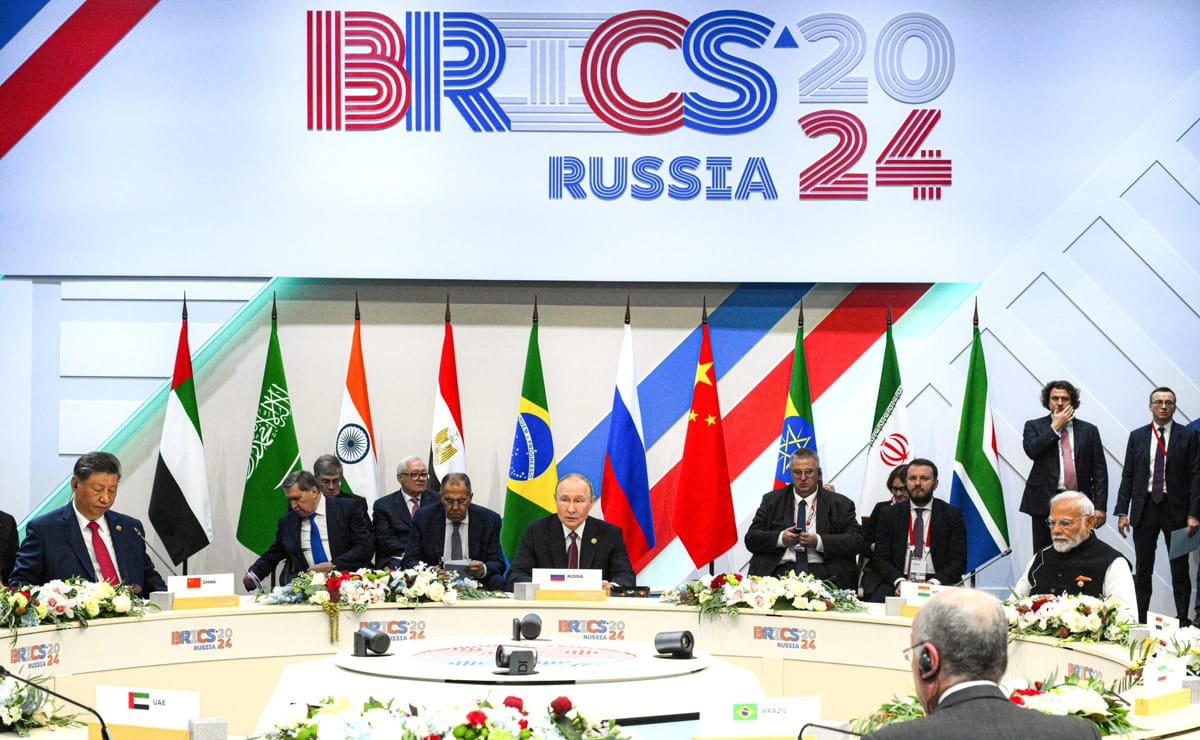The G20, which started in response to the Asian financial meltdown of the late 1990s and was later elevated to a leaders’ summit after the global financial crisis in 2008, has evolved from being a talk shop to the political and economic steering committee for the world. More recently, though, the G20 has emerged as the primary forum for elevating the voice of the Global South.
Brazil will host the next leaders’ summit on 18-19 November, having taken over from India in 2023, and will then pass the baton to South Africa. This will become the fourth consecutive year, starting with Indonesia in 2022, that the G20 presidency will be held by a country of the Global South. In these four years, the Global South agenda has been placed at the front and centre of global governance.
South Africa will be the first African country to head an influential global forum. For a long time, South Africa represented the lone voice of the entire African continent. It was only last year that the African Union was inducted into the G20, as a permanent member of the group, under the advocacy of the Indian presidency, making the forum more inclusive and broadening membership to countries that have traditionally been excluded from world politics.
It’s not only the G20. The growing buzz around BRICS, which had its summit in Kazan last week, is proof of how emerging economies are demanding an alternative to Western-centric models of global governance.
The BRICS has been on an expansion spree of its own, with five new members added last year to the original grouping of five, and more than 30 countries on the waiting list to join. India’s Prime Minister Narendra Modi made sure to emphasise in Kazan that BRICS should be seen as an organisation that wants to “reform” global institutions, and not replace them, carefully differentiating the stance of countries such as India and Brazil from that of China and Russia.

Though the term “Global South” has been in use for more than half a century, coined in the revolutionary decade of the 1960s by American leftist writer Carl Oglesby to describe countries subjected to the dominance of the Global North, it has taken hold in recent years. Multiple and global intersecting crises, starting with the pandemic, conflicts in Ukraine and the Middle East, and the climate challenge have all led to increasing economic fragility and a splintering global order.
There are some who question the idea of the Global South as a catchall phrase for the developing world, given the differences in economies, the diversities in governing systems and cultural identities, not to mention the jostling between China and India, which are staking claim to its leadership. Despite these contradictions, the importance of the Global South as an essential and united voice demanding reform of global governance systems cannot be overlooked.
Like India, its predecessor as host, Brazil has thrown its weight behind the Global South agenda by demanding greater participation of emerging countries in global decision-making.
The agenda of the Global South is as varied as all its members and not easy to sum up given the diversity of interests of developing countries. It is in accommodating the wide-ranging agenda of the Global South that the G20 has played a key role.
During the Indonesian G20 presidency, the war in Ukraine had started affecting global food security, an issue that Indonesia pushed as a priority along with advocating for resilient global health systems in the wake of the pandemic.
India for its part took up inclusive digital infrastructure, an area in which it has found success through homegrown solutions and which it has offered to share with other developing countries, along with the reform of multilateral development banks and international institutions to scale up financing for climate and other global development challenges. More than anything, India’s G20 presidency became a launch pad for its aspirations as a global leader, and it could use the platform to amplify its interests and represent the concerns of the Global South.
Brazil’s G20 presidency has been low-key compared to the pomp and spectacle of the Indian presidency. But like its predecessor, Brazil has thrown its weight behind the Global South agenda by demanding greater participation of emerging countries in global decision-making as one of its three priorities, along with fighting hunger and inequality, and fair energy transition and sustainable development.
Despite the belated inclusion of the African Union, many countries of the developing world remain glaringly absent from the G20, which might explain the growing interest of the rest of the world in joining BRICS. One thing is clear, that the Global South cannot be ignored any longer.

